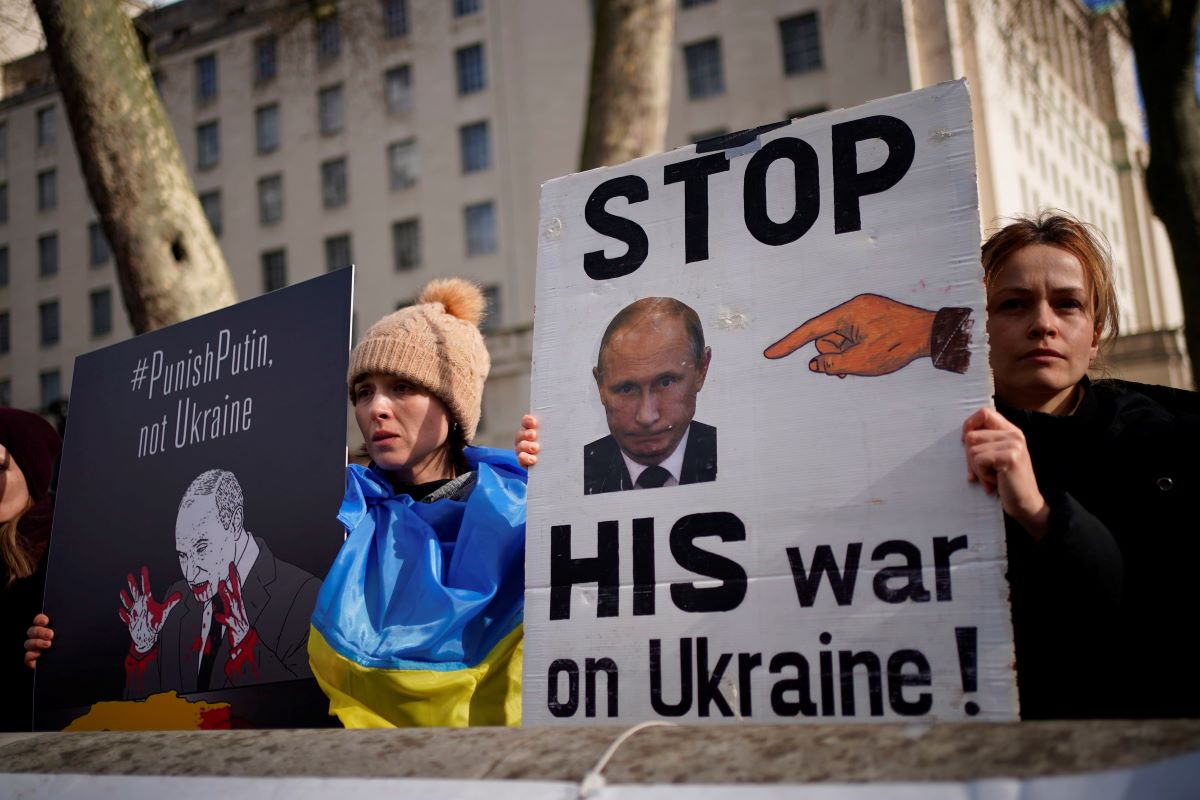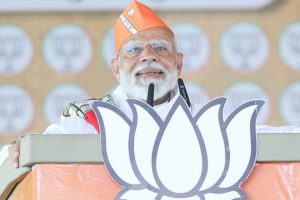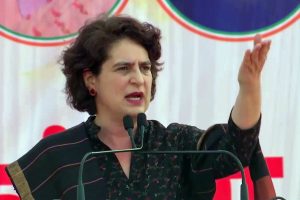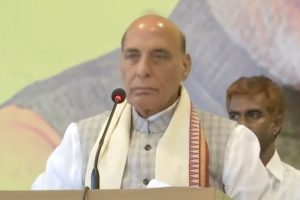One of my earliest recollections of war was Iraq’s invasion of Kuwait in 1991. I recall it because whenever I would quarrel with my elder sister, my mother would refer to my sister as Iraq as she was older, myself as Kuwait and herself as America – the one attempting to make peace.
Operation Desert Storm to liberate Kuwait was the high point in America’s leadership and unquestioned position as the leader of the free world. Around the same time, the capitalist-democratic forces were on the march with American ascendancy, the economic prowess of the European Economic Community (later the European Union) bolstered by the reunification of Germany. It was a different story on the Soviet side of the iron curtain.
In 1989, Lech Walesa and his solidarity movement in Poland, Vaclav Havel in Czechoslovakia and others led the movement to expunge communism from the Warsaw pact countries loosely termed the Autumn of Nations. The communist-socialist system came to an ignominious end with the fall of disintegration and the eventual collapse of the Soviet Union in December 1991.
The former Soviet Republics of Ukraine, Georgia, Belarus, Armenia, Azerbaijan, Kazakhstan, Kyrgyzstan, Moldova, Turkmenistan, Tajikistan, and Uzbekistan decided to chart their paths. The Baltic states had previously declared their independence. After this, Russia entered a period of decline, and despite the best efforts by America to assist Russia’s transition to democracy, nothing of consequence happened.
Boris Yelstin and his health problems and corrupt practices robbed Russia of focused leadership. At the same time, Russia’s state-owned assets were stripped and sold for cheap resulting in the rise of the oligarchy evidenced by the disproportionate number of billionaires in Russia today. On New Year’s Eve 1999, Yelstin resigned and handed the presidency of the Russian Federation to Vladimir Putin. Most famously, there was a sense of optimism from former American president George W. Bush, who said he looked into Putin’s eyes and peered into his soul. Little did Bush know the diminutive man he found to be straightforward and trustworthy would one day bring the world to the brink of World War III.
The invasion of Iraq in 2002 strained Nato and global comity, and America was seen as a bully and preoccupied with its war on terror. America was distracted by national security concerns and internal politics as well. Obama came on stage in 2008 and promised a rupture with the past. He was to lead a post-partisan presidency and remake America’s image. But, in truth, he achieved little on the foreign policy front, and America’s incapability to restrain Putin was personified by Russia’s seizure of Crimea in 2014.
In the 2012 American presidential election, Obama lampooned his opponent Mitt Romney when he said Russia was the single largest strategic threat to America. Ten years later, many people ask themselves, would things be different if Romney had beaten Obama. After the American election of 2016, Donald Trump’s bumbling foreign policy further redrew the global geopolitical fault lines.
Trump was right that European members of Nato had to do more and pay for their share to ensure the security of the North Atlantic. Still, at the same time, Trump’s divisive and erratic approach to American allies caused a massive rethink of America’s reliability as the provider of global security and stability. As America transitioned from one administration to another, Putin solidified his hold on Russia, systematically removed his opponents and ensured he was Russia and Russia was him.
Biden’s chaotic pull-out from Afghanistan and America’s repeated failure to do more for the Middle East after the Arab Spring compounded by the failure to protect Ukraine has thrown the entire liberal-democratic axis and global rules-based order into a quandary.
We ask ourselves: can we depend on America to protect liberal democracy and freedom as it did with Kuwait in 1991? The question is loaded, and the answer is nuanced. But it is germane, nonetheless. Whilst Americans and those sympathetic to it will say it is not the world’s policeman, it was roundly criticised when it tried to be in Kuwait, Bosnia, and Somalia. But history has shown us the world is better off with a strong and engaged America than an uncertain and hesitant America. At the same time, global geostrategic concerns have rapidly evolved.
The world’s focus has shifted to the Indo-Pacific region. America’s contemporary foreign policy goal is to contain China. China’s singular ambition is to assert itself in the Indo-Pacific. In doing so, China is free from democratic constraints and can make deals with anyone it wants to further its interests. India is an uncertain giant troubled by domestic politics but at the same time willing to take unpopular stands like refusing to confront Russia over its invasion of Ukraine to protect its national interests.
Asean is still unsure where it stands in this rapidly evolving IndoPacific. Some want to be close to China, while others are worried about being over-reliant on China. Australia is trying hard to punch above its weight but cannot escape its economic dependence on China. Compounding all of this is the Covid-19 pandemic and the economic destruction it brought with it. With all this global uncertainty, Putin, who had been waiting 22 years to rebuild the Soviet Union, decided it was an opportune time to invade Ukraine. After seven days of fighting, Putin is nowhere near his goal in Ukraine.
While America and its allies pat themselves on the back over the use of sanctions to contain Putin, a new world order has arisen driven mainly by national self-interest with the failure of the United Nations once again laid bare and the nation-state asserting its interest as opposed to international comity. In all the chaos, stock markets have rumbled, crude oil prices have gone up, sanctions imposed by America and its allies on Russia has created untold chaos in global banking and hurt the global economy. In our post-pandemic world, the cost of Russia’s debased misadventure in Ukraine and the reaction to it will have a lasting impact on the global economy.
Further, the fall of Ukraine will not be so much a win for Putin but a failure of America and its allies to protect the global rules-based order. It is a failure for global politics and multilateralism. Putin wins not because he is strong as the bumbling Russia excursion into Ukraine tells us; no one stood up to him when they could. A new precedent has been set, resulting in a new global doctrine – one country can invade another so long it is powerful enough.
(The Star/ANN.)











